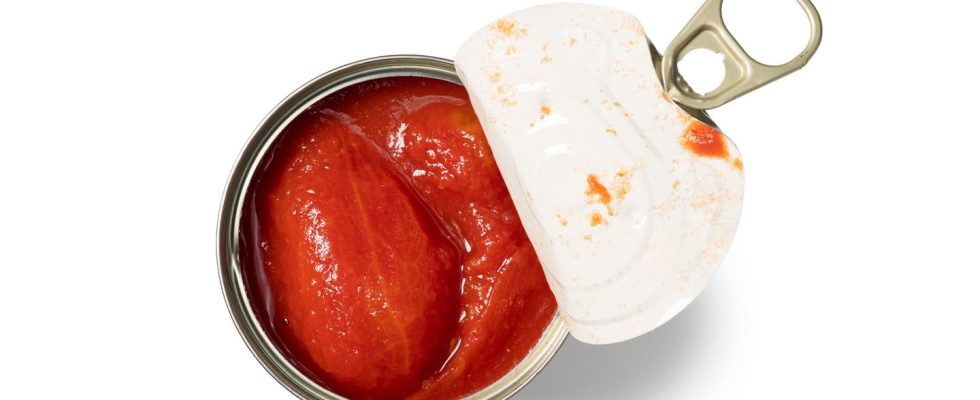Peeled tomatoes in the “Ökotest”
The evil is in the can
Peeled tomatoes in the “Ökotest”
©Getty Images
Bisphenol A becomes a problem in canned tomatoes: In the “Ökotest” all tomatoes exceed the non-critical daily dose. But does the can really make the poison?
It’s bad: All the canned tomatoes in the “Eco test” exceed the recently recommended maximum daily dose of bisphenol A (BPA) by a multiple. Ironically, the product that is used so often: for tomato sauce like Bolognese, on pizza or with stew. The contained industrial chemical affects our hormone system and is officially classified as “toxic to reproduction in humans”. BPA is also suspected of promoting breast cancer, obesity and behavioral problems in children.
“Ökotest” took a closer look at 20 canned goods with peeled tomatoes. These include discounters’ own brands and well-known branded products, eight tins of organically grown tomatoes, and two products are in jars. In particular, the testers wanted to know whether BPA from can coatings can migrate into the tomatoes. Surprisingly, all suppliers assure that they use BPA-free cans and yet the chemical is found in all canned products.
Tomatoes in the Ökotest: Only one product received the overall rating “good”
Only the “La Selva Pomodorini Pelati” and the “Naturata Peeled Tomatoes, Demeter” from the jar are free of BPA – and at least they score “very well” in terms of ingredients. Overall, however, only the “La Selva” are “good” in the overall assessment. The rest is “fair” or worse. The tomatoes from Manufactum fail with “poor”.
But there is also good news: Apart from BPA, almost all tested products are free of critical ingredients. Pesticides, for example, are no longer an issue at all, not even in conventional fruit. Mold toxins were also rarely found. Only in the tomatoes from “Manufactum”.


